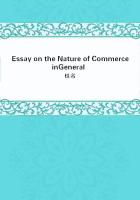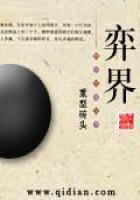But an important and constant result of the general conception is to be found in some of the regular feudal exactions. The villain has no property of his own, and consequently he cannot transmit property. Strictly speaking, there is no inheritance in villainage. As a matter of fact the peasant's property did not get confiscated after his death, but the heirs had to surrender a part of it, sometimes a very considerable one. A difference is made between chattels and land. As to the first, which are supposed to be supplied by the lord, the duty of the heir is especially onerous, On the land of the Bishopric of Lichfield, for instance, he has to give up as heriot the best head of horned cattle, all horses, the cart, the caldron, all woollen cloth, all the bacon, all the swine except one, and all the swarms of bees.(66*) The villains of St. Alban's have to give the best head of cattle, and all house furniture.(67*) But in most cases only the best beast is taken, and if there be no cattle on the tenement, then money has to be paid instead.(68*) The Cartulary of Battle is exceptionally lenient as to one of the Abbey's manors:(69*) it liberates from all duty of the kind those who do not own any oxen, It sometimes happens, on the other hand, that the payment is doubled; one beast is taken from the late occupier by way of heriot, and the other from his widow for the life interest which is conceded to her after the death of her husband.(70*) Such 'free bench' is regulated very differently by different customs. The most common requirement is, that the widow may not marry again and must remain chaste. In Kent the widow has a right to half the tenement for life, even in case of a second marriage; in Oxfordshire, if she marries without the lord's leave, she is left in possession only during a year and a day.(71*)In all these instances, when a second payment arises alongside of the heriot, such a payment receives also the name of heriot because of this resemblance, although the two dues are grounded on different claims, The true heriot is akin in name and in character to the Saxon 'here-geat' -- to the surrender of the military outfit supplied by the chief to his follower. In feudal times and among peasants it is not the war-horse and the armour that are meant, ox and harness take their place, but the difference is not in the principle, and one may even catch sometimes a glimpse of the process by which one custom shades off into the other. On the possessions of St. Mary of Worcester, for instance, we find the following enactment:(72*) Each virgate has to give three heriots, that is a horse, harness, and two oxen;the half-virgate two heriots, that is a harnessed horse and one ox; other holdings give either a horse or an ox. In such connexion the payment has nothing servile about it, and simply appears as a consequence of the fact or assumption that the landlord has provided his peasant with the necessary outfit for agricultural work. And still the heriot is constantly mentioned along with the merchet as a particularly base payment, and though it might fall on the succession of a free man holding in villainage, it is not commonly found on free land. the fact that this old Saxon incident of dependence becomes in the feudal period a mark of servile tenure, is a fact not without significance.
It is otherwise with the relief (relevium), the duty levied for the resumption of the holding by the heir: it extends equally to military tenure and to villainage. Although the heriot and relief get mixed up now and then, their fundamental difference is realised by the great majority of our documents and well grounded on principle. In one case the chattels are concerned, in the other the tenement; one is primarily a payment in kind, the other a money-fine. As to the amount of the relief the same fluctuations may be traced as in the case of the heriot. the most common thing is to give a year's rent; but in some instances the heir must settle with the lord at the latter's will, or ransom the land as a stranger, that is by a separate agreement in each single case.(73*) Fixed sums occur also, and they vary accord ing to the size and quality of the holding.(74*)On the boundary between personal subjection and political subordination we find the liability of the peasantry to pay tallage. It could be equally deduced from the principle that a villain has nothing of his own and may be exploited at will by his master or from the political grant of the power of taxation to the representative of feudal privilege. the payment of arbitrary tallage is held during the thirteenth century to imply a servile status.(75*) Such tallage at will is not found very often in the documents, although the lord sometimes retained his prerogative in this respect even when sanctioning the customary forms of renders and services. Now and then it is mentioned that the tallage is to be levied once a year,(76*) although the amount remains uncertain.
As a holder of political power the lord has a right to inflict fines and amercements on transgressors.(77*) The Court-rolls are full of entries about such payments, and it seems that one of the reasons why very great stress was laid on attendance at the manorial Courts was connected with the liability to all sorts of impositions that was enforced by means of these gatherings. tenants had to attend and to make presentments, to elect officers, and to serve on juries; and in every case where there was a default or an irregularity of any kind, fines flowed into the lord's exchequer.
Lastly, we may classify under the head of political exactions, monopolies and privileges such as those which were called banalites in France: they were imposed on the peasantry by the strong hand, although there was no direct connexion between them and the exercise of any particular function of the State.















